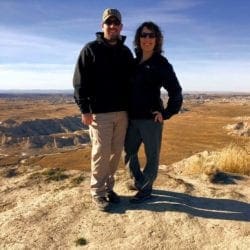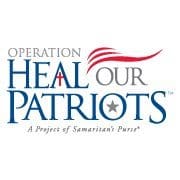I have learned that I am not alone in this journey, there are others in similar situations. I have learned to accept help when needed, and I’ve learned that I am much stronger and more resilient than I ever thought.
At what moment did you realize you were a military caregiver?
In 2013, I noticed a decline in my husband’s health – both mentally and physically. It took many appointments speaking with military personnel regarding his health and me advocating for proper evaluation and plan of care.
What does being a military caregiver mean to you?
Being a military caregiver means that I am able to give back to my husband for all of the sacrifices he has made for our family during his career. It means advocating for him and his healthcare. It also means being his strength and encouragement when he doesn’t feel like he can go on.
Can you describe a milestone or a moment that made you feel empowered or inspired as a caregiver?
I felt empowered when I was able to advocate for my husband to receive proper medical treatment after months of feeling “blown-off” by his military providers.

My Story
Tennille's husband John served as an Explosive Ordnance Disposal Team Leader until he was medically retired in August 2016. The long term effects of his multiple blast exposures were not immediately recognized. After a long, hard battle with his medical team, John was finally referred for evaluation. John suffers from multiple blast-related traumatic brain injuries (TBI), post traumatic stress disorder (PTSD), chronic migraines, memory impairment, spinal injuries, and more.
In September 2016, one month after John retired, it was apparent he needed substantial assistance with daily living. Tennille left her 20-year nursing career to be his full-time caregiver and it was the best decision she could make. While it can be challenging at times, they are able to find happiness in the little things in life.
Her goal as a Dole Caregiver Fellow is to increase awareness of these debilitating invisible wounds. Tennille's caregiving journey has given her a desire to educate others on the invisible wounds of war, PTSD and TBI, and their effects on the entire family.










